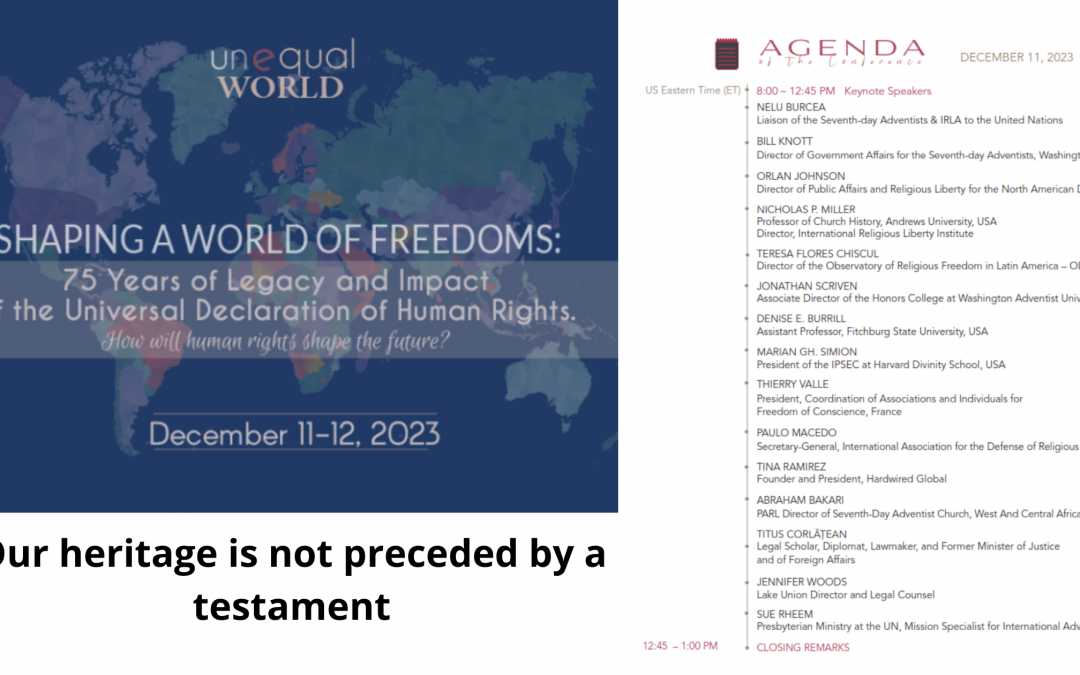
by CAP Liberté de Conscience | Dec 19, 2023 | CAP LC Event Coming, news
Hannah Arendt quotes an aphorism by René Char (published in Feuillets d’Hypnos in 1946). “During the Resistance, a generation of European writers and men of letters created, in the political vacuum created by the collapse of the old system, a distinct public sphere, a bare space in which freedom could appear. But this opportunity did not last long. This treasure, which had appeared unexpectedly under mysterious circumstances, was soon lost. That generation was unable to give it a name. The history of revolutions was repeating itself.

by CAP Liberté de Conscience | Dec 10, 2023 | CAP LC Event Coming, news
Dans le cadre de la commémoration du 75e anniversaire de la Déclaration Universelle des Droits de l’Homme, un groupement d’Associations et d’ONG collaborant avec les Nations Unies organise une conférence en ligne les 11 et 12 décembre 2023 (en anglais) et le 13 décembre 2023 (en français). Cette conférence qui a pour thème « Façonner un monde de libertés : 75 ans d’héritage et d’impact de la Déclaration Universelle des Droits de l’Homme ! Comment les Droits de l’Homme façonneront-ils l’avenir ? », vise à explorer l’influence durable et la pertinence de cette Déclaration.
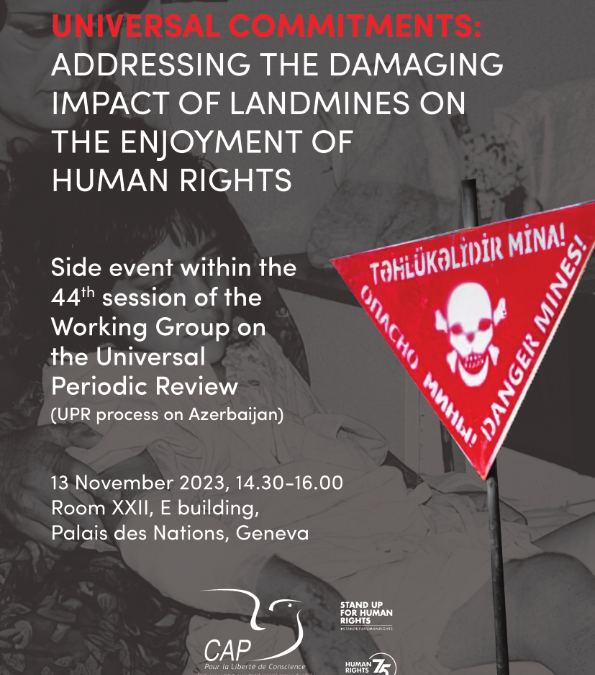
by CAP Liberté de Conscience | Nov 10, 2023 | CAP LC Event Coming, UN UPR
UPHOLDING UNIVERSAL COMMITMENTS:
Addressing the damaging impact of landmines on the enjoyment of human rights
Side event within the 44 session of the Working Group on the Universal Periodic Review
Room XXII, E building, Palais des Nations, Geneva 13 November 2023 / 14.30-16.00
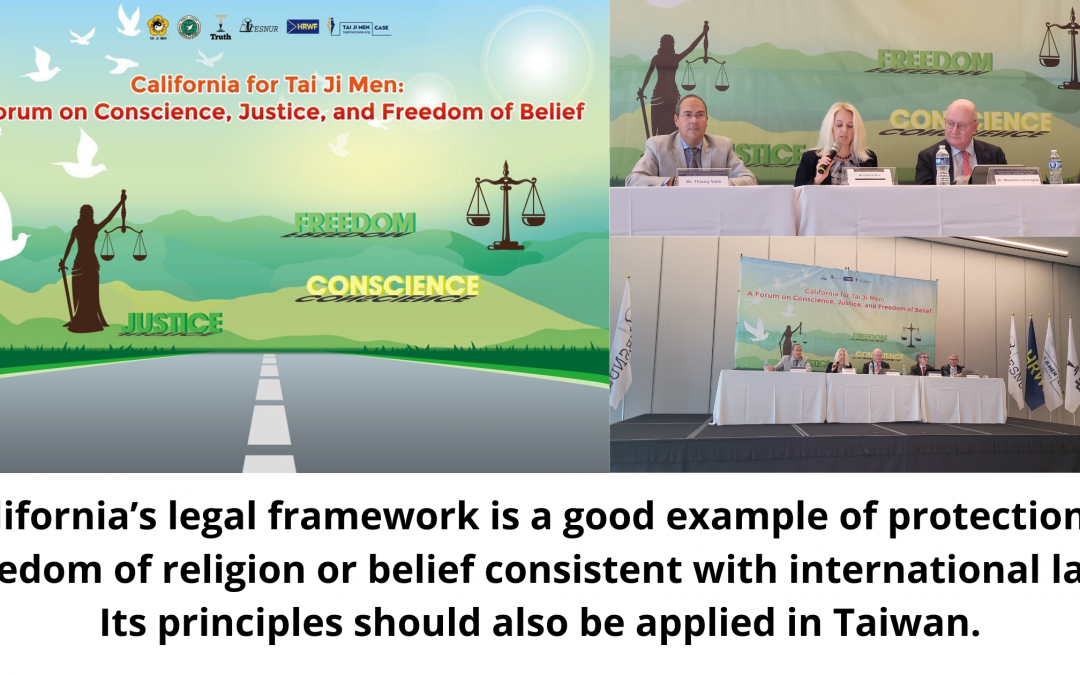
by CAP Liberté de Conscience | Oct 18, 2023 | CAP LC Event Coming, news
California, the Golden State, is known for its stunning landscapes, thriving entertainment industry, and diverse culture. Beneath the surface of this multifaceted state lies another remarkable aspect of its diversity: religious pluralism. From the Spanish missions of the 18th century to the bustling metropolises of the 21st century, California’s religious landscape has evolved into a vibrant tapestry of faiths and beliefs.
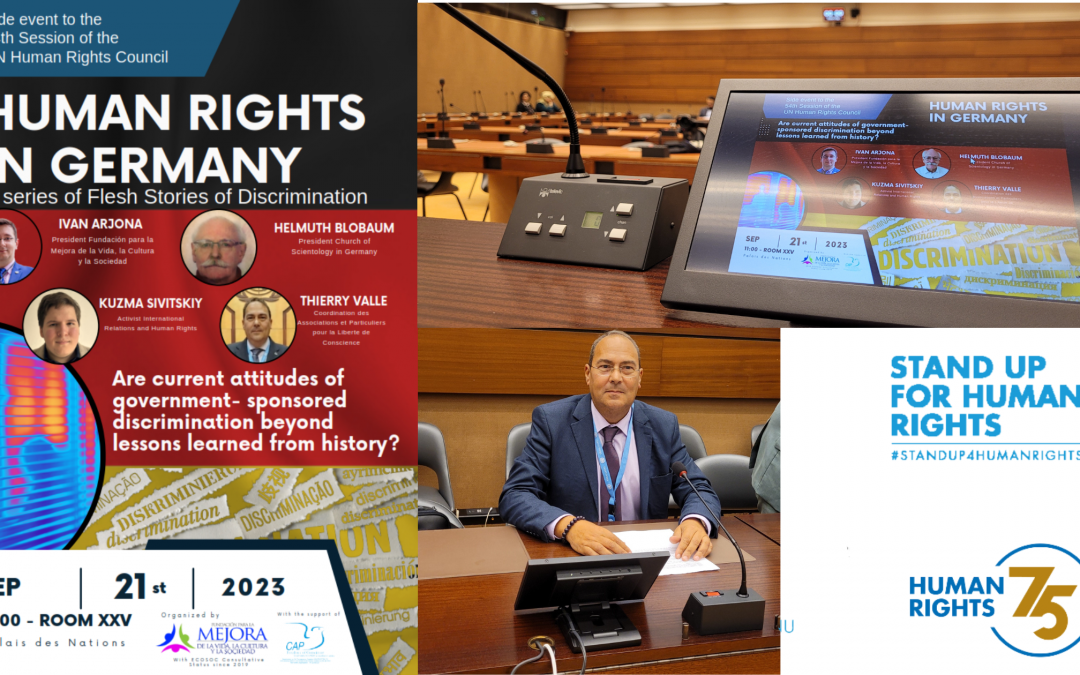
by CAP Liberté de Conscience | Oct 2, 2023 | CAP LC Event Coming, news, UN UPR
Thousands of Ahmadi Muslims in Germany who have fled severe religious persecution in Pakistan are awaiting a decision on their asylum applications. They belong to a religiously and politically persecuted minority – the Ahmadiyya Muslim Community. It is recognized around the world by human rights groups that Ahmadi Muslims are constantly, ruthlessly persecuted.
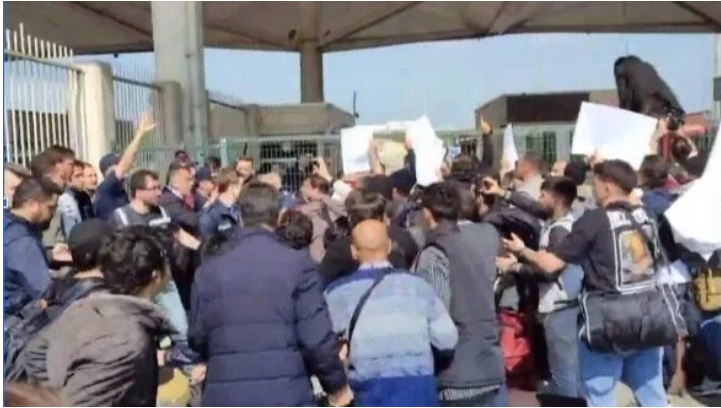
by CAP Liberté de Conscience | Sep 29, 2023 | CAP LC Event Coming, HRC 54, news
In a side-event of the 54th session of the Human Rights Council in Germany, director of CAP Freedom of Conscience, Thierry Valle, has delivered an oral statement emphasizing the urgent need to grant asylum/humanitarian visas to the 101 members through EU consulates in Turkey as the only way available means to safeguard their right to freedom of religion and their right to life and freedom from inhumane or degrading treatment.

by CAP Liberté de Conscience | Sep 25, 2023 | CAP LC Event Coming, HRC 54
Since May of this year, over 100 Ahmadis from various countries where they were heavily persecuted, have been detained by the Turkish authorities in Edirne Immigration Detention Center. They want to apply for asylum in an EU country.
Those people from the Ahmadi Religion of Peace and Light do not want to stay in Turkey, another Muslim majority country, where people also consider them infidels and treat them as such.
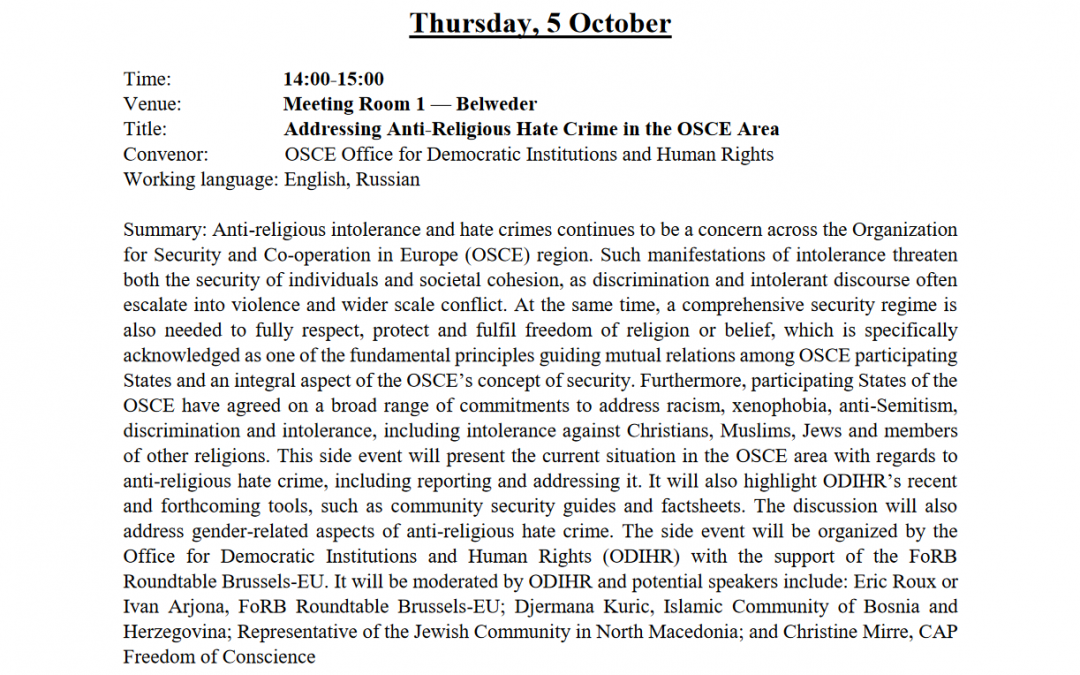
by CAP Liberté de Conscience | Sep 25, 2023 | CAP LC Event Coming, OSCE
Anti-religious intolerance and hate crimes continues to be a concern across the Organization for Security and Co-operation in Europe (OSCE) region. Such manifestations of intolerance threaten both the security of individuals and societal cohesion, as discrimination and intolerant discourse often escalate into violence and wider scale conflict. At the same time, a comprehensive security regime is also needed to fully respect, protect and fulfil freedom of religion or belief, which is specifically acknowledged as one of the fundamental principles guiding mutual relations among OSCE participating States and an integral aspect of the OSCE’s concept of security. Furthermore, participating States of the OSCE have agreed on a broad range of commitments to address racism, xenophobia, anti-Semitism, discrimination and intolerance, including intolerance against Christians, Muslims, Jews and members of other religions. This side event will present the current situation in the OSCE area with regards to anti-religious hate crime, including reporting and addressing it. It will also highlight ODIHR’s recent and forthcoming tools, such as community security guides and factsheets. The discussion will also address gender-related aspects of anti-religious hate crime. The side event will be organized by the Office for Democratic Institutions and Human Rights (ODIHR) with the support of the FoRB Roundtable Brussels-EU









